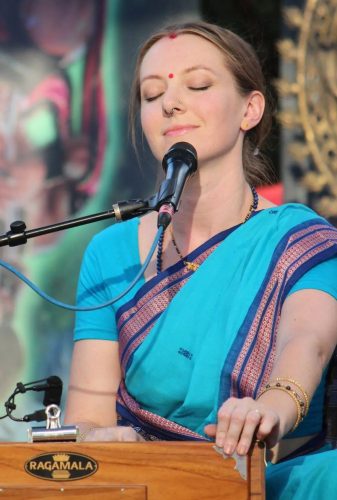Have you ever been told not to sing? – or that you sing out of tune, or don’t have a good voice? So many of my vocal students tell me a similar story, often from as far back as childhood. It breaks my heart to think how many people go through life believing they “can’t sing.”
The world is not divided into people who can sing and people who can’t. Singing (like any other musical instrument) is a skill that can be learned. It would be absurd to think that you could simply sit at a piano and make lovely music without any lessons – yet, we seem to think that a “good voice” is something you either have or don’t have. True “tone deafness,” or amusia, is a rare condition affecting less than 4% of people. The truth is that with proper training, most people can learn to sing well.
Of all the musical instruments on this earth, there is none more naked and honest than the voice. It’s the only one you can’t see or touch with your hands. It couldn’t be any closer or more intimate. Its very tones reveal our hearts – we literally become choked with emotion at times. It’s no wonder that when many of us sing, we do so shyly and only when we are sure that no one is listening! It’s the incredible intimacy of the human voice that makes it so captivating. It’s why we feel that we somehow know our favorite singers, even if we’ve never met them.
Every culture on Earth has singing within its traditions, rituals, and celebrations, and the benefits of group singing, in particular, have been studied extensively. I’m particularly interested in group-singing as a spiritual practice. In India, devotees have been offering kirtan (singing the names and mantras of god/dess in a call and response format) and bhajan (poetic love-songs to the Divine) in their homes, temples, and even in the streets, for well over 1000 years. I grew up singing kirtan and bhajan, and it remains part of my daily Bhakti Yoga practice. But, I’ve also fallen in love with the devotional music of other faiths; it is in singing to the Divine that I find the human voice to be the most beautiful, for instance the ecstatic gospel music of Walter Hawkins, the stirring intensity of Tuscarora Native American singer Pura Fé, the fire and flair of Nusrat Fateh Ali Khan’s Sufi Qawwali.
In Indian classical music, it is said that each note, or swara, contains within it a unique deity form, and that a particular state of consciousness can be attained through meditation on that note. Specific combinations of swaras, called ragas, correspond with various deities and times of the day, and each can evoke a certain inner feeling state, called bhava. Sound itself, and all music, is considered a living form of the goddess Saraswati, and there is an entire yogic system, called Nāda Yoga, dedicated to this sacred sound current.

If you would like to explore the beauty and depth of your voice, I invite you to begin by trying this simple practice. Sit comfortably, and close your eyes. Take deep breaths so that you feel the belly, chest, side ribs, and back all expanding and contracting. Enjoy the fullness of your breath. With a big inhale, open your mouth and sing the sound of “AH.” Hold the note as you would hold a yoga posture, steady and easeful. Relax your jaw. Listen closely to the sound, and make small adjustments if there is any wavering or inconsistency. Feel all the places in your body where the sound is resonating within you. Then, pause and listen to the silence. Feel the residue of that sacred sound within and all around you. If your mind goes back to old stories of unworthiness, gently put those thoughts aside and give your attention to the “AH” sound. Do this nine times daily and notice what changes begin to take place in your voice, your mind, and in your heart.















One reply on “Learn to Love Your Voice”
Lovely article … and all true!!
B E A U T I F U L